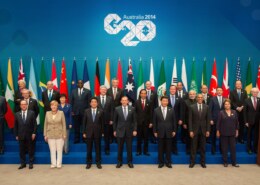United Nations Framework Convention on Climate Change (UNFCCC) Kyoto Protocol Paris Agreement Montreal Protocol
Cybersecurity significantly impacts global geopolitics and international relations by: Espionage: Nations use cyber tools for intelligence gathering, affecting trust and diplomatic relations. Cyber Warfare: State-sponsored attacks can disrupt critical infrastructure, leading to tensions or conflictsRead more
Cybersecurity significantly impacts global geopolitics and international relations by:
- Espionage: Nations use cyber tools for intelligence gathering, affecting trust and diplomatic relations.
- Cyber Warfare: State-sponsored attacks can disrupt critical infrastructure, leading to tensions or conflicts.
- Economic Impact: Cyber theft and attacks can damage economies, influencing global trade and economic policies.
- Sovereignty: Cyber intrusions challenge national sovereignty and can provoke geopolitical responses.
- Political Interference: Cyber operations can influence elections and political stability, impacting international relations.
To address cyber threats effectively, countries can:
- Establish International Norms: Develop and agree on global standards for responsible state behavior in cyberspace.
- Enhance Cooperation: Share threat intelligence and best practices through international alliances and organizations.
- Create Multilateral Agreements: Form treaties to govern cyber conduct and ensure mutual assistance in response to cyber incidents.
- Promote Capacity Building: Assist less developed nations in strengthening their cyber defenses.
- Engage in Diplomatic Dialogues: Use diplomatic channels to resolve cyber-related disputes and build trust among nations.


Our mother earth is getting warmer day by day due to natural as well as anthropogenic activities leading to climate change. we have already breached 1.5 degrees Celsius according to International data which was agreed upon in the Paris Agreement (2015) to reduce emissions. In 1992 the global wake hRead more
Our mother earth is getting warmer day by day due to natural as well as anthropogenic activities leading to climate change. we have already breached 1.5 degrees Celsius according to International data which was agreed upon in the Paris Agreement (2015) to reduce emissions.
In 1992 the global wake happened which led to the formation of the United Nations Framework on Climate Change and Conservation (UNFCCC) which explicitly addresses climate change, establishing an annual forum (the Conference of the Parties or COP) for international climate negotiations. recently we addressed COP 28 which was held in DUBAI. COP28 explicitly addressed the need to transition away from fossil fuels in energy systems, in a just, orderly and equitable manner, to achieve net-zero emissions by 2050. It also established a Loss and Damage fund which will help developing countries to have strong financial support to transform energy and technology sustainably.
although many treaties and conventions have been signed, we cannot achieve them because of the rigid nature of developed countries like the United States, which is backing out from financial assistance. also, we are living in an unstable world with lots of war which shifts the focus from sustainability to warfare.
See less